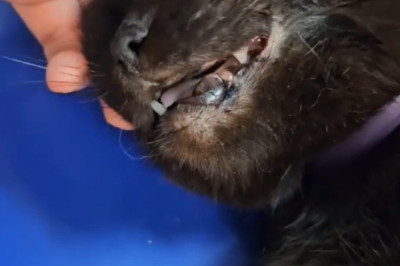Movember for Pets: Preventing and Treating Prostate Cancer in Dogs and Cats
Introduction
The "Movember" campaign, traditionally associated with raising awareness about men's health, particularly in the context of prostate cancer prevention and early diagnosis, has extended its reach to include our furry friends. The "Movember for Pets" initiative underscores the significance of pet health, specifically addressing the well-being of male dogs and cats. This article aims to shed light on how pet owners can prevent and treat prostate cancer in their beloved animal companions during the "Movember for Pets" campaign.
Understanding Prostate Health in Pets
Stefanie Poblete, a veterinarian and the coordinator of pet products at Syntec do Brasil, emphasizes the goal of the November campaign for pets. She states, "The intention of the campaign this month is to alert and inform pet owners that pets can also experience prostate changes. Additionally, it provides guidance on the necessary care and the routine of regular exams for the well-being of pets."
Common Prostate Conditions in Dogs
The most prevalent prostate alteration in dogs is Benign Prostatic Hyperplasia (BPH), commonly known as BPH. This condition is directly linked to aging and is more frequent in elderly, unneutered males. Generally benign in nature, most cases can be resolved through the castration of the pet.
In addition to BPH, according to the Federal Council of Veterinary Medicine, prostate cancer can also occur in dogs, particularly between the ages of six and seven. The likelihood of this problem affecting dogs over seven years old doubles if the pet is not neutered. Prostate issues can also impact cats.
Diagnosing Prostate Issues
The veterinarian is the key to identifying prostate-related diseases, notes the Syntec veterinarian. "Only the veterinarian can diagnose the disease in some cases, both through physical examination and complementary exams such as ultrasound. Additionally, prostate alterations often manifest alongside other signs, such as difficulty urinating, blood in the urine, and even difficulty defecating."
Silent Signs and the Importance of Regular Check-ups
It's crucial to recognize that signs of prostate issues in pets can sometimes be subtle. Maintaining a routine of veterinary check-ups and preventive exams is vital, contributing to early diagnosis. This proactive approach preserves the well-being of the animal and allows for more effective treatments, ensuring a high quality of life.
Veterinary Perspective
Regular veterinary check-ups play a crucial role in ensuring the overall health of pets, including the early detection of prostate issues. The veterinarian's expertise is essential for identifying subtle signs, conducting necessary tests, and prescribing appropriate treatments. This collaborative approach between pet owners and veterinarians is fundamental to the success of preventive measures and the well-being of the animals.
Conclusion
As the "Movember for Pets" campaign highlights the importance of prostate health in male dogs and cats, pet owners are encouraged to stay vigilant about the well-being of their furry companions. Regular veterinary check-ups, awareness of potential signs, and prompt action can significantly contribute to the prevention and early treatment of prostate issues. By participating in this campaign, pet owners can ensure the comfort, health, and happiness of their beloved animals throughout their lives.





















Comments
0 comment